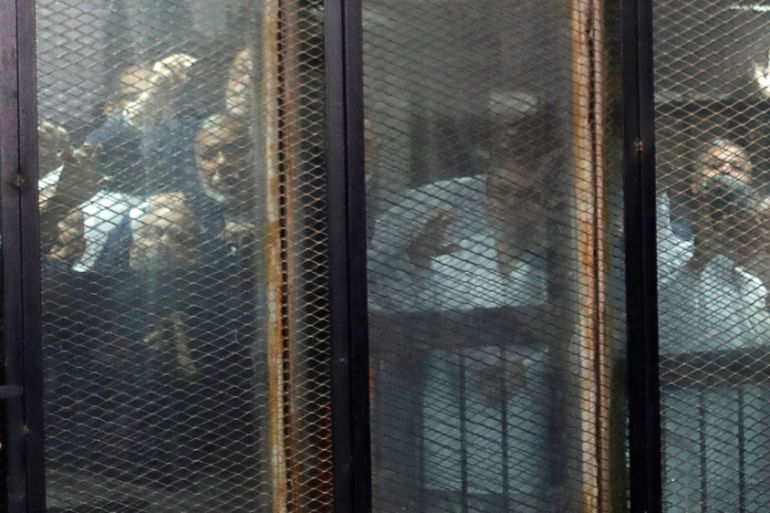Egypt’s Muslim Brotherhood calls for a unified opposition
Banned group urges opponents of President Sisi to free Egypt from military control and release political prisoners.

The Muslim Brotherhood has called for the establishment of a united Egyptian opposition group abroad to help regain control of the country after a military coup in July 2013 put Abdel Fattah el-Sisi in power.
In a statement marking the eighth anniversary of the January 25, 2011 revolution, the outlawed group said the purpose of a unified opposition would be to liberate Egypt from military rule and to release political prisoners from prison.
Keep reading
list of 4 itemsWhat challenges do Turkey, Egypt face in restoring ties?
Yusuf al-Qaradawi, the Muslim scholar who influenced millions
Qatar’s emir in Cairo for talks with Egypt’s president
The Muslim Brotherhood – Egypt’s oldest and most influential Islamist group – called on expatriate Egyptian judges to take over the leadership of a constituent body, pointing out that individuals or groups abroad can help the work of the opposition at home.
In the interest of the Egyptian revolution and to protect the opposition, the statement also stressed the need to stay away from those who advocate the use of violence.
The banned group highlighted articles of the 1923 Constitution relating to individual and public freedoms, particularly the independence of the judiciary.
The Muslim Brotherhood was outlawed as a “terrorist group” by the Egyptian government in December 2013, and funds and assets belonging to its members were confiscated. Hundreds of supporters were arrested with many facing the death penalty.
The Brotherhood refuses to accept Sisi’s government and says it will return to the political arena with popular support. However, Sisi passed a law banning demonstrations without prior police approval, stifling the protest movement.
Human rights defenders, civil society groups and NGOs have also been targeted.
Human Rights Watch estimated Egypt has imprisoned as many as 60,000 political activists, a figure Sisi has denied.
|
|
Coup d’etat in 2013
Sisi came to power following the coup that overthrew Egypt’s first democratically elected president Mohamed Morsi, a leader of the Muslim Brotherhood, in 2013. Last June, Sisi began a second four-year term after an election that saw him clinch 97 percent of the vote.
Rights group Amnesty International said last week the country has become more dangerous than at any time in recent history for anyone openly criticising the government.
Egyptian authorities arrested at least 113 people in 2018 for peacefully expressing their views, Amnesty said.
Those who dared criticise the government were sent to prison, often held in solitary confinement or subjected to forced disappearances.
Sisi denies the existence of political prisoners in Egypt, arguing everyone in detention is facing legal proceedings.
The 2011 uprising brought millions of Egyptians to the streets and forced longtime leader Hosni Mubarak to step down. But the movement has been much-maligned by Sisi and the pro-government media since his takeover.